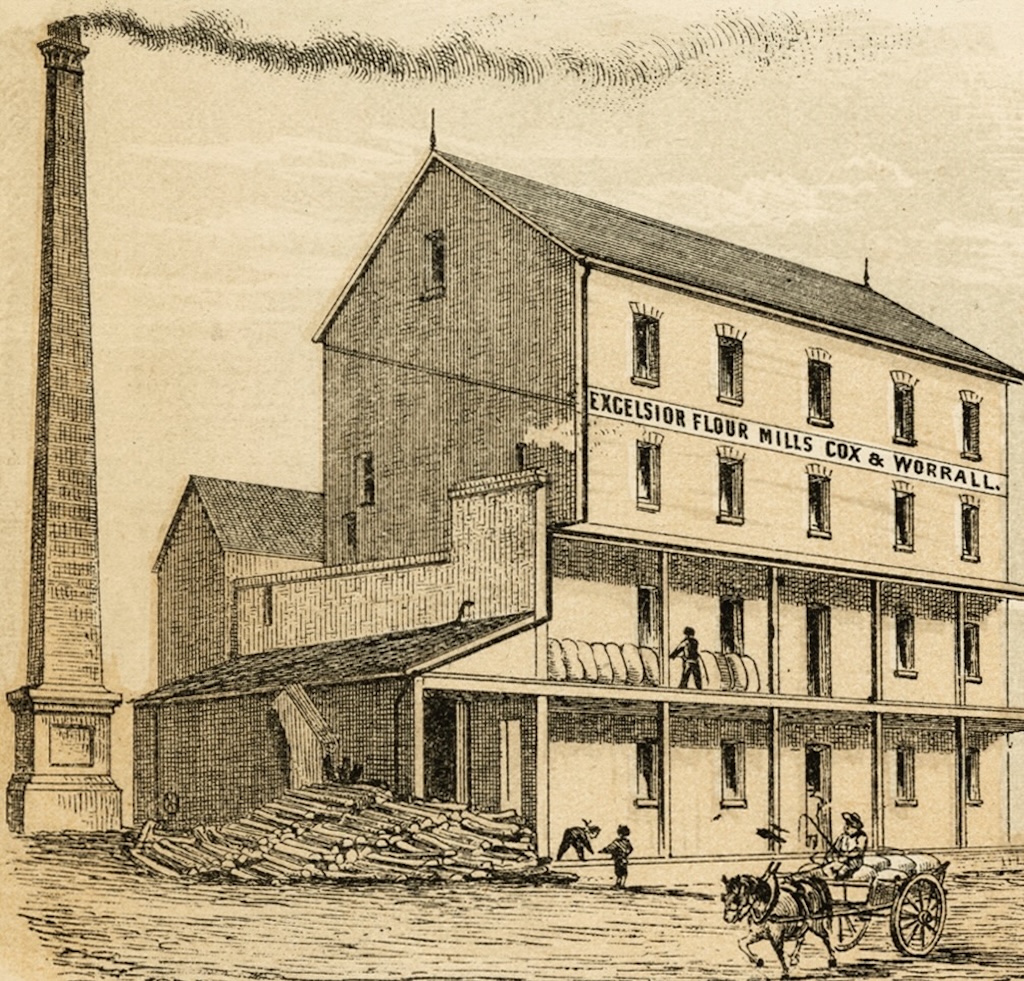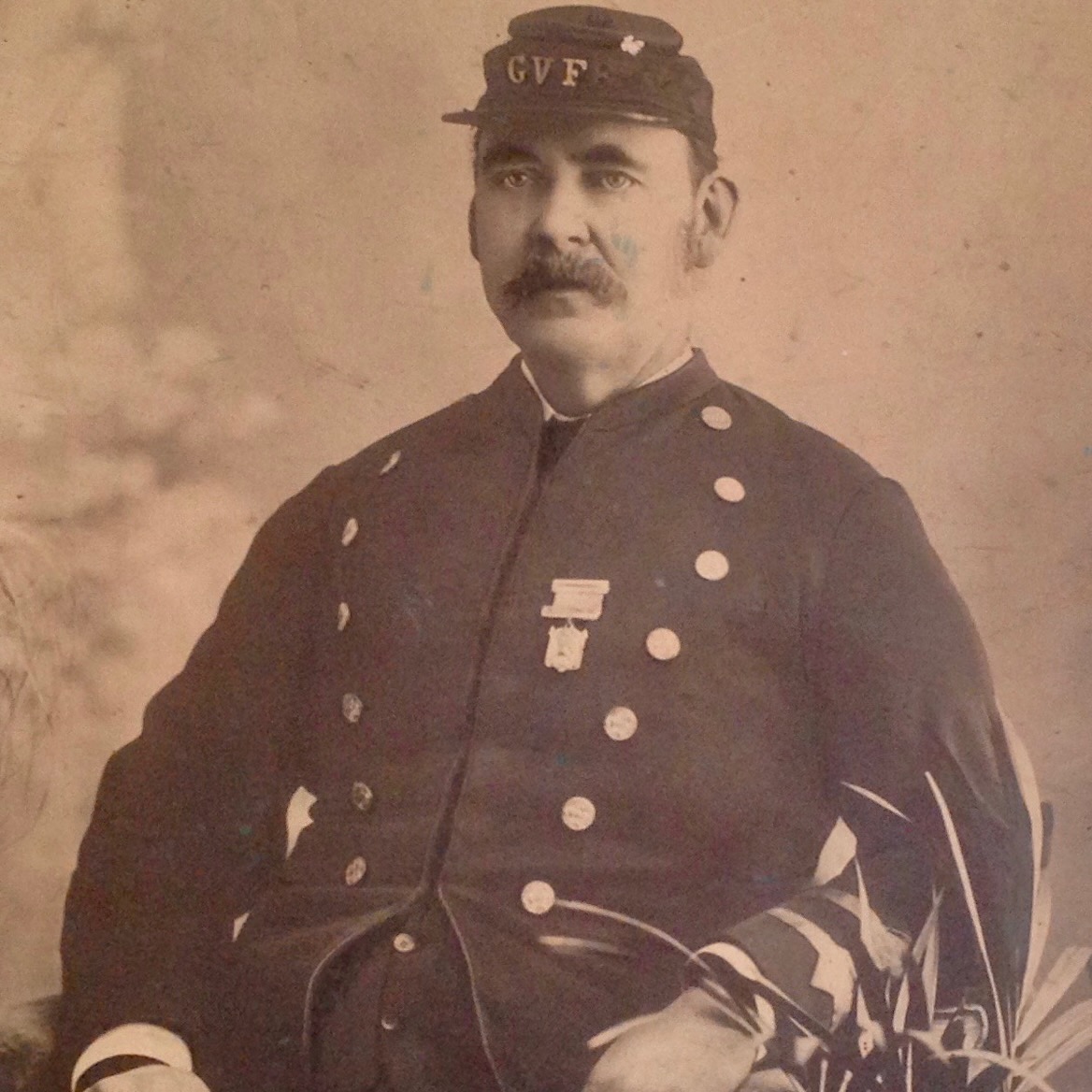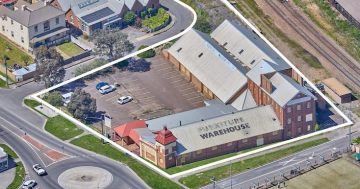
Excelsior Steam Flour Mills in Clinton Street, Goulburn, had all the bells and whistles of the era when it opened in 1882, but was in dire straits in 1888 when a fire broke out underneath its heat elevator. Photo: History Goulburn.
The opening in 1882 of a four-storey, steam-powered flour mill lifted Goulburn to new heights, only for that lofty status to go up in flames six years later in almost comical circumstances.
A showcase of modern milling, the Excelsior Steam Flour Mills – aka Cox’s Mill – comprised a boiler house, engine house, basement, and four floors.
It stood almost as high as its accompanying chimney stack, which climbed more than 60 feet high.
The imposing building’s walls were 18 inches thick to the first floor, 14 inches thick to the second and third storey and nine inches to the top.
The horizontal high-pressure engine imported from Cochrane, Glasgow, was the most modern of its type and modified in Victoria to suit the Goulburn operations. Its large cylinder drove a 14-foot wide, 3.5-ton flywheel.
More than 154,000 bricks were used to construct the building in Clinton Street. It had an iron roof, 12-inch timber girders, wrought iron pillars supporting all floors, and joists in the floor made of Sutton Forest box timber.
Well before monster new mills dotted the landscape, Goulburn had an earlier boast, being the first jurisdiction outside of Sydney to form a fire brigade in 1854. But such a leap forward was not always a guarantee for fire protection.
Publican J. J. Woodward of the Commercial Hotel imported from Sydney a one-horse fire cart at his own expense. The brigade operated out of his hotel, with an engine house and alarm bell attached to the premises.
So, by 1888, you would think Goulburn’s fire brigade had progressed sufficiently to extinguish any sudden outbreaks, including the one which started in the bottom of a wheat elevator at Cox’s Mill, suspected of being caused by friction.
But so caught out was Goulburn, the ensuing fire made it into the ‘Our Strange Past’ – a series compiled by George Blaikie, a Sydney-born journalist – which was syndicated in newspapers across Australia for more than 30 years.
Blaikie takes up the story:
“Firefighting, of all unlikely things, was just about the most popular sport among the young men of Goulburn in 1888.

Ex-captain GT Taylor, who was a fireman in Goulburn for more than 30 years. Photo: GDHS Photo Collection.
Only a top-line athlete with great stamina and powers of continued concentration had any chance of getting a guernsey in the team of 12 plus captain which represented the big country town in firefighting competitions.
It is history that the Goulburn chaps were at peak efficiency in 1888 when they went down to Sydney for the state championships.
And did they do their home town proud! They competed in seven events and they won six in a near clean sweep which had Hall of Fame quality.
Naturally the boys went home loaded with trophies and expected a well-earned heroes’ reception from the proud crowd that would be waiting at the station.
The crowd was on the platform as anticipated but it was jeering rather than cheering.
It turned out that while the local brigade had been in the capital winning glory, their town had been left unprotected from fire.
One result was that Cox’s flour mill had caught fire.”
History of Goulburn author Ransome T Wyatt said while the captain and brigade were covering themselves in glory in Sydney, others toiled against the flames at home.
Ex-captain Taylor and other former members of the brigade did their best in the emergency with buckets of water. Apparently, the engine and hose were absent, too.
The damage amounted to 1000 pounds, (a small fortune at the time). Censure was passed on the captain and members as displaying a great lack of organisation. The culprits returned later with prizes and trophies – and more than likely red faces.








